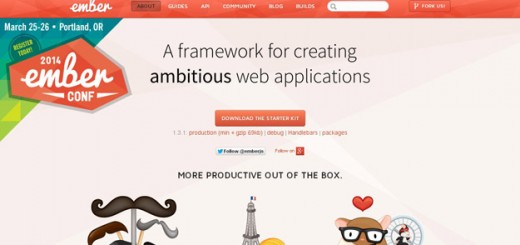Organisations are so eagerly looking for developers capable of creating machine learning and deep learning applications. In recent years, the development of advanced and smart applications makes it easier to implement machine learning enabled modules in your work culture. Automated chatbots, pattern analysis, face or voice recognition like developments not only changed the way of doing things but also derive an optimal solution for solving complex tasks.
So are you ready to join this league? If not..!! Or you have just marked your presence in Java programming, you can go through Java Certification Course available over the internet. It will help you to understand Java with real-world applications.
In this article, I’m going to uncover five machine learning libraries assisting developers to create advanced ML applications for Java. Let’s explore:
1). Deeplearning4j
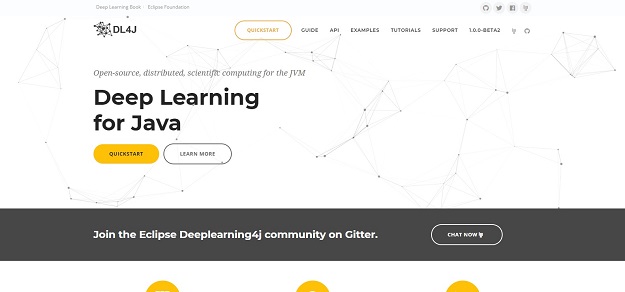
Deeplearning4j is one of the most powerful open-source machine learning libraries used in java. It provides computing framework for various developing deep learning-based algorithms. Its distributed computing framework inherits Apache Hadoop and Spark framwork for training ML models. This module is developed in Java programming language. Its compatibility with any JVM language leverage use of Kotlin, Scala etc.
Deeplearning4j comprised of a DIY tool to manage the various concurrent tasks virtually. This tool is very helpful in recognizing the patterns and sentiment in voice or text. Financial applications can use this package to detect anomalies in time series information such as transactions. It is obvious that DL4J is strictly designed to implement AI in business environments with distributed GPUs and CPUs capability.
2). Mallet
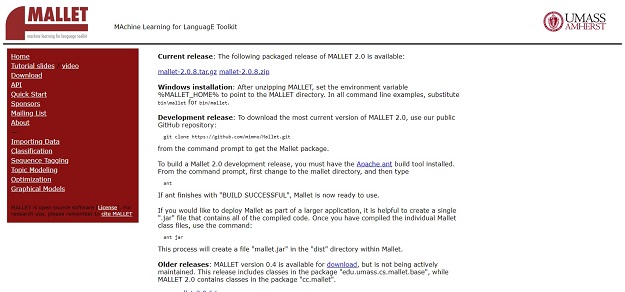
Mallet is another Java programming based open-source package used for document classification. It allows developers to accomplish complex ML operations in their application such as NLP, clustering, modelling, data extraction and classification etc.
It includes a various set of algorithms for evaluating the classifier performance. These algorithms can be Naive Bayes, Decision trees or maximum entropy etc., and are evaluated with the help of metrics.
You can easily perform topic modelling with Mallet powered Latent Dirichlet Allocation, Pachinko and Hierarchical LDA.
3). RapidMiner
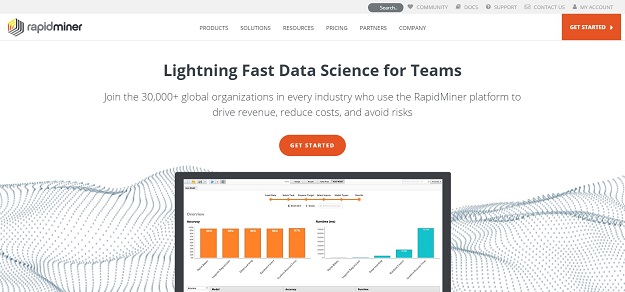
RapidMiner is widely accepted by data scientists because of its multitasking platform where a user can perform entire data science work at a single place. From data collection and model building to deployment. According to Gartner and Forrester RapidMiner was one of the highest rated and easy to use predictive analytics application across the globe.
RapidMiner offers a studio for visualizing your workflow, auto model for designing a predictive model, a server, Radoop for performing big data analytics and real-time scoring for converting insights into actions. To finish your work in an effective way, you can leverage the use of features selection, data fetching and cleaning with provided Graphical User Interface It also provides a Java API for creating your own application. Its ML powered algorithms allow you to manage, visualize and model data.
4). Java-ML
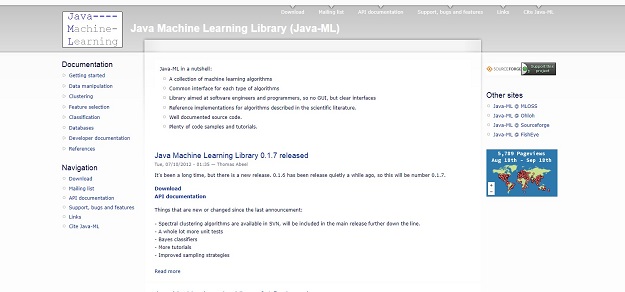
Java-ML is a collection of ML algorithms with a common interface for all. It doesn’t provide any kind of GUI but it has a well-arranged interface for implementing each algorithm. The latest version of Java-ML library includes spectral clustering algorithm, Bayes classifiers and enhanced sampling strategies. It contains quick dynamic time warping algorithm and a FileHandler class to export data to a file.
5). KNIME

KNIME stands for Konstanz Information Miner. This analytics framework was initially developed for the pharmaceutical research but bow it has expanded its leg in BI. It provides a user-friendly GUI with java API to dig out your innovative power. This package is designed for powering data-driven innovations. It helps a user to identify the potential hidden inside a data and predicting the future outcome with it.
Thus, we can see how Java is the best fit for developing advanced ML applications. It is empoering the growth of various organisations with multiple packages available to simplify their work.




